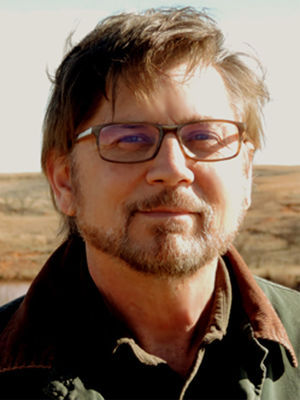Some information may be outdated.
Back in 2008, the day after Obama’s landslide election, local progressive/environmentalist Dave Erley sent out a mass celebratory email. In part he wrote:
“The progressive, green, candidates won all three contested County Council seats and the progressives now have a clear majority on the Council. How loud can I sing ‘Happy Days are here again’? This all reflects the demographic changes that have occurred in Grand County in the last four years… Fallout from the amenities economy I guess…”
And he had a personal note for me:
“Jim (Stiles), this is another aspect of the amenities economy you have been hammering on. I hope you have the courage to discuss the pros and not just the cons of the demographic shift…”
Erley signed his letter, “euphoric in the desert…”
Now in 2017, as Moab explodes from its “industrial tourism” successes and excesses, as it deals with an amenities economy marked by low wages, exorbitant housing prices, and chaotic growth, and with even more exponential growth ahead, I wonder if Mr. Erley is as “euphoric in the desert” as he was that bright November morning almost a decade ago.
Claiming to be “green” or “progressive” while also playing huckster for the industrial recreation industry is nothing new. The partnership of environmentalists and the corporate outdoor gear industry goes back almost 20 years.
In 1998, environmentalists from across the country gathered at an Arizona dude ranch for a “Wilderness Mentoring Conference,” to consider new strategies. One prominently displayed quote established the meeting’s tone and direction:
“Car companies and makers of sports drinks use wilderness to sell their products. We have to market wilderness as a product people want to have.”
It was a seminal moment. Subsequently, mainstream environmentalists formed lucrative alliances with the outdoor recreation industry. It was a perfect fit. Marketing the “New West” was born.
Now, transforming the Rural West into more Moabs is environmentalists’ daily mantra. They believe it’s the best way to “save” it. Just ask the outdoor industry.
Luther Probst, the Outdoor Industry Alliance’s board chairman, recently proclaimed, “The evidence is overwhelming that monuments and other protected public land actually contribute to the prosperity of rural communities.”
The OIA boasts that the recreation economy generates $646 billion in consumer spending and creates 6.1 million jobs. Environmental groups fervently embrace such factoids and spend more time praising the potential profits from monuments and parks than the reasons wilderness is important in the first place.
Their unbridled enthusiasm is also the New West’s Big Lie.
While the recreation industry and environmental groups grind out daily reports on the financial benefits of an industrial tourism economy, it’s a deceptive claim – just who specifically prospers in the New West?
These recently urbanized rural economies were rarely intended to benefit the citizens whose families founded small Western towns more than a century ago. Or the Native Americans who came before them. For the New West, it’s not a matter of helping rural communities. It’s about replacing them.
The recent Bears Ears issue has intensified the debate. No one has been more candid about eliminating the rural economy than Mark Bailey, a former Salt Lake City investment adviser, now relocated to Torrey, Utah, and a board member of the Wild Utah Project. He wrote recently:
“I have a vision of Torrey becoming an example of rural renewal and progress, where the flora and fauna are left unmolested by domestic livestock, water runs free in the streams, the rocks are not mined and crushed for road base and the forests are not clear cut but the community thrives all the same….There exists the infrastructure to support gatherings and targeted conventions for think tanks, conservationists, literary and arts gatherings.”
For those people whose families have lived there for a century or more, Bailey suggests they leave home, get an education, then “work to build intellectual capital.” It might take years.
The fact is, most “Old Westerners” do not have the money, the time, or the expertise to transfer their entire lives into a recreation economy. When New West boosters praise their own economic accomplishments, few are expecting to share that success with their Old West adversaries. The transformation of the American Rural West is really a hostile takeover.
In fact, most urban proponents ooze loathing for the rural population and repeatedly dismiss them as ignorant, racist rubes. But the New West ignores the fact that their “solution” establishes a culture and economy that excludes everyone – of any race – who lacks the affluence and wealth to participate in it.
It creates a New West Feudal System of “haves” and “have nots.”
And what happens to the millions of rural Americans who founded these communities decades or centuries ago? Anglos and Native Americans alike? The industrial tourism economy is always looking for burger flippers and curio clerks.
Good luck.
Jim Stiles is the founding publisher of The Canyon Country Zephyr and the author of “Brave New West.”
Appreciate the coverage? Help keep local news alive.
Chip in to support the Moab Sun News.



